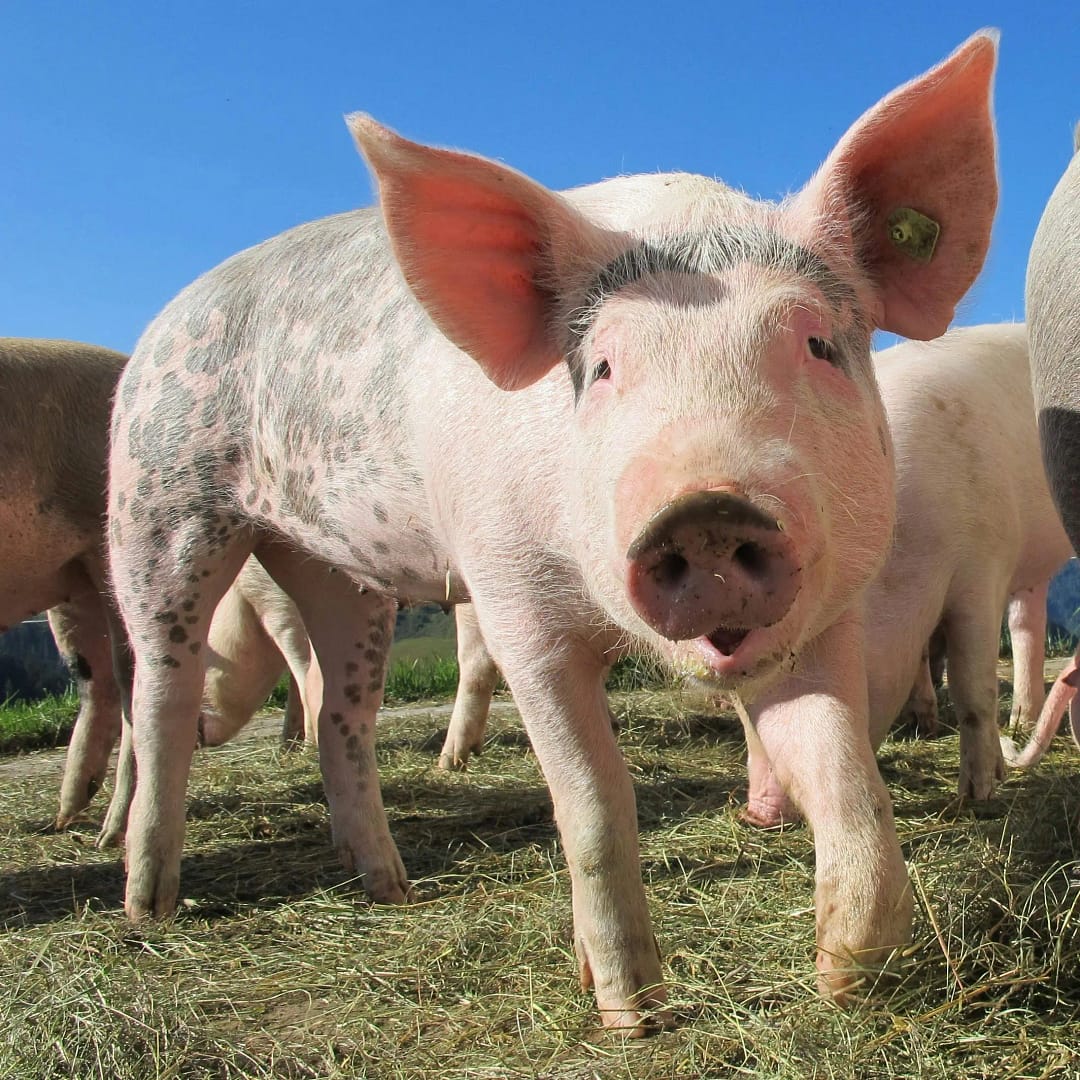Regarding the question of why Muslims don’t eat pork, the main reason for its prohibition is that it is a divine command. Allah, the Almighty, has forbidden all that is impure for humans and has permitted what is wholesome. Therefore, one must submit to and obey the command of Allah, the Almighty.
Allah, the Almighty, has prohibited pork because it is considered an impure animal that consumes filthy food, and it transmits impurity and harm to those who eat it.
Why don’t Muslims eat pork from a scientific perspective?
Muslims in the past were not aware of the specific harmful details of pigs or the reasons for its prohibition, until modern discoveries revealed the harmful factors and dangerous germs associated with pigs. For instance, pork contains a dangerous worm, whose larvae exist in pork and, when consumed by humans, it becomes lodged in the intestines in a way that cannot be treated with anti-parasitic drugs. Instead, this worm embeds itself within human muscles, making it impossible for modern medicine to remove it. This worm, which poses a serious threat to human life, is known as Trichina. Thus, the wisdom behind the prohibition of pork in Islam becomes clear.
According to the Larousse French Encyclopedia, this harmful worm (Trichina) can transfer to humans and spread to the heart, then settle in the muscles, especially in the chest, sides, throat, eyes, and diaphragm. The larvae of this worm can remain alive in the human body for many years.
It is not sufficient to stop at this discovery for an explanation, as the science that uncovered this particular issue in pigs may uncover more hidden dangers in the future. Therefore, Islam does not accept the argument that modern pig farming techniques, which monitor and control their grazing, living conditions, and shelter, can eliminate these germs.
As the Islamic ruling on the prohibition of pork is absolute and not based on specific reasoning, there may be other harms associated with pigs that have not yet been discovered. Science is constantly evolving. Furthermore, even if it becomes possible to raise pigs in a way that eliminates this problem in some civilized parts of the world, it will not be possible in all places around the globe. The rulings of Islamic law must be applicable to all people in all locations, hence the prohibition is general and comprehensive.
Ruling on Eating Pork
It is not permissible to eat pork, and this prohibition also extends to its fat, cartilage, brain, bones, skin, milk, and all its parts, except in cases of dire necessity, as agreed upon by Islamic scholars. In such a situation, a person may consume a small amount of pork to save their life if they are in danger of starvation and there is no other option. Afterward, the person must return to the original ruling, which prohibits the consumption of pork.
If a person is in a situation where both dog meat and pork are available, they should eat the dog meat and leave the pork, according to the Hanbali school of thought. This is because some scholars have permitted the consumption of dog meat in cases of necessity. In such dire situations, one may consume pork fat, kidneys, or liver if available, as the explicit prohibition is on pork itself, while other parts of the pig are less clearly mentioned. The Maliki school holds that in times of necessity, one should consume carrion (dead animals not slaughtered properly) and avoid pork, but only if absolutely necessary.
Where in the Quran does it say not to eat pork?
Allah has decreed that pork is impure and unlawful for Muslims to consume. Allah says in the Qur’an: “Say, ‘I do not find within that which was revealed to me anything forbidden to one who would eat it unless it be a dead animal or blood spilled out or the flesh of swine – for indeed, it is impure – or it be [that slaughtered in] disobedience, dedicated to other than Allah. But whoever is forced [by necessity], neither desiring [it] nor transgressing [its limit], then indeed, your Lord is Forgiving and Merciful.’” [Surah Al-An’am: 145].
There is no specific reason mentioned in the Islamic teachings for the prohibition of pork other than the statement: “for indeed, it is impure.” The term “impure” (rijs) refers to what is considered repulsive according to Islamic law and to natural, healthy instincts, and this reasoning alone is sufficient.
There is also a general rationale that applies to pork and other prohibited foods, which is found in Allah’s words: “He forbids them what is impure” [Surah Al-A’raf: 157]. Everything that Allah has prohibited is harmful, and in this context, the harm could affect a person’s health, wealth, or morals.
Why did God create the pig if it is forbidden?
God, the Almighty, creates whatever He wills, and there must be wisdom behind the creation of everything by God. Among these creations is the pig. It has been said that the wisdom behind creating the pig is its role in cleaning filth, and it has also been suggested that it serves as a witness to God’s punishment of certain nations that were transformed into apes and pigs. God creates whatever He wills, and He alone knows the wisdom behind it.
This article has been informed by the resources available on IslamWeb.


